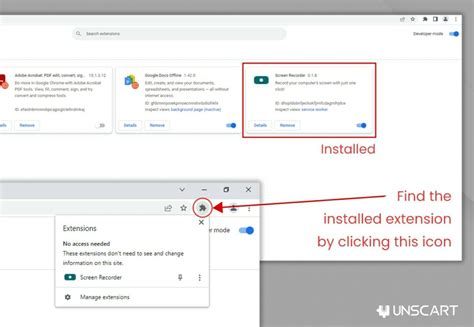Proxychecker
Author: c | 2025-04-24

from proxy_checker import ProxyChecker checker = ProxyChecker() checker.check_proxy(' ip : port ') – Community Bot. Commented at . Add a comment Download ProxyChecker 1.4 - Test proxies with this application. ProxyChecker is a handy, easy to use tool designed to help you check a list of proxies if they are online.

Downloading File /ProxyChecker v1.3/ProxyChecker v1.3 Source
PHP Proxy CheckerProxy Checker is a PHP library that allows you to quickly check a list of proxies.fast (thanks to asynchronous requests)simple (PSR-7 based)supports many protocolscustomizable (full control over request / response checking)Installationcomposer require retrowaver/proxy-checkerHow it works?ProxyChecker constructor takes 2 mandatory arguments:PSR-7 Requestobject that implements ResponseCheckerInterfaceWhen checkProxies() is called, it attempts to send that request using every proxy, and then calls checkResponse() of provided ResponseCheckerInterface implementation, which ultimately decides whether proxy is valid or not.Depending on how much control you want, you can use built-in ResponseCheckerBuilder for a quick start (see below) or make a custom class.1. Basic usageStep 1. Make proxy arrayMake proxy array manually:setIp('127.0.0.1') ->setPort(1080) ->setProtocol('http'), (new Proxy) ->setIp('192.168.1.1') ->setPort(8080) ->setProtocol('http')];">use Retrowaver\ProxyChecker\Entity\Proxy;$proxies = [ (new Proxy) ->setIp('127.0.0.1') ->setPort(1080) ->setProtocol('http'), (new Proxy) ->setIp('192.168.1.1') ->setPort(8080) ->setProtocol('http')];... or use built-in simple importer:import($lines, 'http');">use Retrowaver\ProxyChecker\Import\SimpleImporter;$importer = new SimpleImporter;$lines = file('path-to-file-with-proxies.txt'); // ip:port format$proxies = $importer->import($lines, 'http');Step 2. Prepare a requestPrepare a PSR-7 request that will be send using proxies.use GuzzleHttp\Psr7\Request;$request = new Request('GET', ' 3. Prepare ResponseCheckerYou can use built-in ResponseCheckerBuilder:bodyContains('some string on target website');">use Retrowaver\ProxyChecker\ResponseChecker\ResponseCheckerBuilder;$responseChecker = (new ResponseCheckerBuilder) ->bodyContains('some string on target website');or write a custom ResponseCheckerInterface implementation:use Psr\Http\Message\ResponseInterface;use Retrowaver\ProxyChecker\Entity\ProxyInterface;class CustomResponseChecker implements ResponseCheckerInterface{ public function checkResponse( ResponseInterface $response, ProxyInterface $proxy ): bool { if (...) { // proxy not valid return false; } // valid proxy return true; }}$responseChecker = new CustomResponseChecker;Step 4. Create ProxyChecker and check proxiescheckProxies($proxies);">use Retrowaver\ProxyChecker\ProxyChecker;$proxyChecker = new ProxyChecker($request, $responseChecker);$validProxies = $proxyChecker->checkProxies($proxies);2. Additional infoOptions referenceProxyChecker accepts optional parameters $options and $requestOptions:$optionsconcurrency - max concurrent request (default 50)$requestOptions are Guzzle request options that are passed to Guzzle client while sending a request. Currently there's only one default value: 'timeout' => 20Supported protocolsPHP Proxy Checker should work with http, https, socks4, socks4a, socks5 and socks5h proxies (see for descriptions). from proxy_checker import ProxyChecker checker = ProxyChecker() checker.check_proxy(' ip : port ') – Community Bot. Commented at . Add a comment Download ProxyChecker 1.4 - Test proxies with this application. ProxyChecker is a handy, easy to use tool designed to help you check a list of proxies if they are online. "action": "getTasksList", "data": { "completed": "1" }}Response example{ "success": 1, "data": [ "2291", "2324", "2331", "2384", "2398", "2434", "2445", "3482", ... ]}getParserInfoDisplays a list of all available results that the specified scraper can return.Request example{ "password" : "pass", "action" : "getParserInfo", "data" : { "parser" : "SE::Google" }}Response example{ "success": 1, "data": { "results": { "arrays": { "ads": [ "Ads list", [ [ "link", "Link" ], ... ] ], "related": [ "Related keywords", [ [ "key", "Key" ] ] ], "rich": [ "Rich snippets list", [ [ "name", "Name" ] ] ], "serp": [ "Main serp list", [ [ "link", "Link" ], ... ] ], "pages": [ "Raw data array", [ [ "data", "Raw data" ] ] ] }, "flat": [ [ "query", "Formatted query" ], ... ] } }}getAccountsCountGetting the number of active Yandex accounts.Request example{ "password": "pass", "action": "getAccountsCount"}Response example{ "success": 1, "data": { "SE::Yandex": 18 }}deleteTaskResultsFileDeleting a result file by the task id.Request example{ "password": "pass", "action": "deleteTaskResultsFile", "data": { "taskUid": "181" }}Response examplechangeTaskStatusChanging the status of a task by its id. There are only 4 states into which a task can be transferred:starting - starting the taskpausing - pausing the taskstopping - stopping the taskdeleting - deleting the taskRequest example{ "password": "pass", "action": "changeTaskStatus", "data": { "taskUid": "181", "toStatus": "deleting" }}Response examplechangeProxyCheckerStateChanging the state of the proxy checker (1 - enabled / 0 - disabled).Request example{ "password": "pass", "action": "changeProxyCheckerState", "data": { "checker": "proxychecker name", "state": 1 }}Response examplemoveTaskMoving a task in the queue by its id. Possible directions of movement:start - to the beginning of the queueend - to the end of the queueup - one position updown - one position downRequest example{ "password": "pass", "action": "moveTask", "data": { "taskUid": "181", "direction": "start" }}Response exampleupdateUpdates the executable file of the scraper to the latest available version. After sending the command, A-Parser will be automatically restarted. The API will return a success response after it downloads and updates the executable file, which can take 1-3 minutes.Request example{ "password": "pass", "action": "update"}Response exampleComments
PHP Proxy CheckerProxy Checker is a PHP library that allows you to quickly check a list of proxies.fast (thanks to asynchronous requests)simple (PSR-7 based)supports many protocolscustomizable (full control over request / response checking)Installationcomposer require retrowaver/proxy-checkerHow it works?ProxyChecker constructor takes 2 mandatory arguments:PSR-7 Requestobject that implements ResponseCheckerInterfaceWhen checkProxies() is called, it attempts to send that request using every proxy, and then calls checkResponse() of provided ResponseCheckerInterface implementation, which ultimately decides whether proxy is valid or not.Depending on how much control you want, you can use built-in ResponseCheckerBuilder for a quick start (see below) or make a custom class.1. Basic usageStep 1. Make proxy arrayMake proxy array manually:setIp('127.0.0.1') ->setPort(1080) ->setProtocol('http'), (new Proxy) ->setIp('192.168.1.1') ->setPort(8080) ->setProtocol('http')];">use Retrowaver\ProxyChecker\Entity\Proxy;$proxies = [ (new Proxy) ->setIp('127.0.0.1') ->setPort(1080) ->setProtocol('http'), (new Proxy) ->setIp('192.168.1.1') ->setPort(8080) ->setProtocol('http')];... or use built-in simple importer:import($lines, 'http');">use Retrowaver\ProxyChecker\Import\SimpleImporter;$importer = new SimpleImporter;$lines = file('path-to-file-with-proxies.txt'); // ip:port format$proxies = $importer->import($lines, 'http');Step 2. Prepare a requestPrepare a PSR-7 request that will be send using proxies.use GuzzleHttp\Psr7\Request;$request = new Request('GET', ' 3. Prepare ResponseCheckerYou can use built-in ResponseCheckerBuilder:bodyContains('some string on target website');">use Retrowaver\ProxyChecker\ResponseChecker\ResponseCheckerBuilder;$responseChecker = (new ResponseCheckerBuilder) ->bodyContains('some string on target website');or write a custom ResponseCheckerInterface implementation:use Psr\Http\Message\ResponseInterface;use Retrowaver\ProxyChecker\Entity\ProxyInterface;class CustomResponseChecker implements ResponseCheckerInterface{ public function checkResponse( ResponseInterface $response, ProxyInterface $proxy ): bool { if (...) { // proxy not valid return false; } // valid proxy return true; }}$responseChecker = new CustomResponseChecker;Step 4. Create ProxyChecker and check proxiescheckProxies($proxies);">use Retrowaver\ProxyChecker\ProxyChecker;$proxyChecker = new ProxyChecker($request, $responseChecker);$validProxies = $proxyChecker->checkProxies($proxies);2. Additional infoOptions referenceProxyChecker accepts optional parameters $options and $requestOptions:$optionsconcurrency - max concurrent request (default 50)$requestOptions are Guzzle request options that are passed to Guzzle client while sending a request. Currently there's only one default value: 'timeout' => 20Supported protocolsPHP Proxy Checker should work with http, https, socks4, socks4a, socks5 and socks5h proxies (see for descriptions).
2025-04-08"action": "getTasksList", "data": { "completed": "1" }}Response example{ "success": 1, "data": [ "2291", "2324", "2331", "2384", "2398", "2434", "2445", "3482", ... ]}getParserInfoDisplays a list of all available results that the specified scraper can return.Request example{ "password" : "pass", "action" : "getParserInfo", "data" : { "parser" : "SE::Google" }}Response example{ "success": 1, "data": { "results": { "arrays": { "ads": [ "Ads list", [ [ "link", "Link" ], ... ] ], "related": [ "Related keywords", [ [ "key", "Key" ] ] ], "rich": [ "Rich snippets list", [ [ "name", "Name" ] ] ], "serp": [ "Main serp list", [ [ "link", "Link" ], ... ] ], "pages": [ "Raw data array", [ [ "data", "Raw data" ] ] ] }, "flat": [ [ "query", "Formatted query" ], ... ] } }}getAccountsCountGetting the number of active Yandex accounts.Request example{ "password": "pass", "action": "getAccountsCount"}Response example{ "success": 1, "data": { "SE::Yandex": 18 }}deleteTaskResultsFileDeleting a result file by the task id.Request example{ "password": "pass", "action": "deleteTaskResultsFile", "data": { "taskUid": "181" }}Response examplechangeTaskStatusChanging the status of a task by its id. There are only 4 states into which a task can be transferred:starting - starting the taskpausing - pausing the taskstopping - stopping the taskdeleting - deleting the taskRequest example{ "password": "pass", "action": "changeTaskStatus", "data": { "taskUid": "181", "toStatus": "deleting" }}Response examplechangeProxyCheckerStateChanging the state of the proxy checker (1 - enabled / 0 - disabled).Request example{ "password": "pass", "action": "changeProxyCheckerState", "data": { "checker": "proxychecker name", "state": 1 }}Response examplemoveTaskMoving a task in the queue by its id. Possible directions of movement:start - to the beginning of the queueend - to the end of the queueup - one position updown - one position downRequest example{ "password": "pass", "action": "moveTask", "data": { "taskUid": "181", "direction": "start" }}Response exampleupdateUpdates the executable file of the scraper to the latest available version. After sending the command, A-Parser will be automatically restarted. The API will return a success response after it downloads and updates the executable file, which can take 1-3 minutes.Request example{ "password": "pass", "action": "update"}Response example
2025-04-21"runTaskOnComplete": null, "useResultsFileAsQueriesFile": false, "runTaskOnCompleteConfig": "default", "toolsJS": "", "prio": 5, "removeOnComplete": false, "callURLOnComplete": "", "queriesFile": [ "queries/Text Document.txt" ] }}Response example{ "success": 1, "data": "5432"}Starting a previously saved taskYou can run a preset previously created through the interface. In this case, you only need to specify the requests. You can also override any of the task parameters, they will be used on top of the values in the preset.Request example{ "password": "pass", "action": "addTask", "data": { "queriesFrom": "text", "queries": [ "google.com", "yandex.ru" ], "configPreset": "default", "preset": "Analyze Domains" }}Response example{ "success": 1, "data": "5436"}Flag removeOnRestartThis flag indicates that tasks will be removed upon the scraper's restart.Request example{ "password": "pass", "action": "addTask", "data": { "queriesFrom": "text", "queries": [ "google.com", "yandex.ru" ], "configPreset": "default", "preset": "Analyze Domains", "removeOnRestart": 1 }}Response example{ "success": 1, "data": "5437"}Flag removeOnCompleteThis flag indicates that tasks will be removed upon completion.Request example{ "password": "pass", "action": "addTask", "data": { "queriesFrom": "text", "queries": [ "google.com", "yandex.ru" ], "configPreset": "default", "preset": "Analyze Domains", "removeOnComplete": 1 }}Response example{ "success": 1, "data": "5438"}infoGetting general information about the state of A-Parser and obtaining a list of all available scrapers.tipYou can get the current version number of A-Parser directly via the link: example{ "password": "pass", "action": "info"}Response example{ "tasksInQueue": 0, "pid": "13968", "activeProxyCheckerThreads": 0, "workingTasks": 0, "activeThreads": 0, "version": "1.2.1151", "availableParsers": [ "API::Server::Redis", "Check::BackLink", "Check::RosKomNadzor", "DeepL::Translator", "GooglePlay::Apps", "HTML::EmailExtractor", ... "Util::AntiGate", "Util::ReCaptcha2", "Util::YandexRecognize" ]}getParserPresetRetrieving the settings of the specified scraper and preset.tipThis method allows you to get a full list of parameters for use in other API requests.Request example{ "password": "pass", "action": "getParserPreset", "data": { "parser": "SE::Google", "preset": "default" }}Response example{ "success": 1, "data": { "queryformat": "$query", "parsenotfound": 1, "reCaptchaRetries": 3, "pagecount": 5, "gl": "", "proxyChecker": "*", "hl": "en", "domain": "www.google.com", "timeout": 60, "Util_ReCaptcha2_preset": "default", "useproxy": 1, "nfpr": 0, "extraquery": "", "serptime": "all", "location": "", "usesessions": 1, "filter": 1, "linksperpage": 100, "dontTakeSession": 0, "addHeaders": "", "serp": "", "proxyretries": 10, "device": "desktop", "requestdelay": 0, "debug_nonexists_domains": 0, "proxybannedcleanup": 600, "formatresult": "$serp.format('$link\\n')", "reCaptchaPassProxy": 0, "lr": "" }}getProxiesRequest for a list of live proxies. Returns a list of live proxies from all proxy checkers.Request example{ "password": "pass", "action": "getProxies"}Response example{ "success": 1, "data": { "127.0.0.1:23486": [ "socks" ], "127.0.0.1:23140": [ "socks" ], "127.0.0.1:21971": [ "http" ] }}IP:port of the proxy will be indicated as the name of the array. The first element of the array is the type of proxy, which can take 3 values - http, socks, socks4. If authorization by login/password is specified, then the second and third elements will be login and password.It is also possible to get a list of proxies only from certain proxy checkers. For this, you need to additionally pass an array checkers.Example:{ "password": "pass", "action": "getProxies", "data": { "checkers": [ "Elite proxies",
2025-04-17